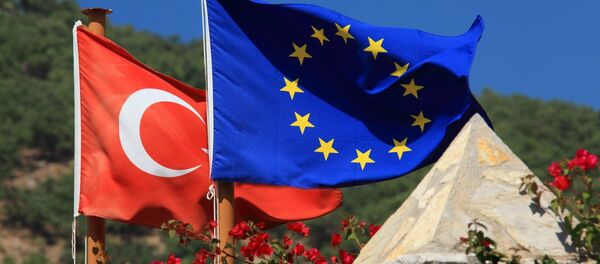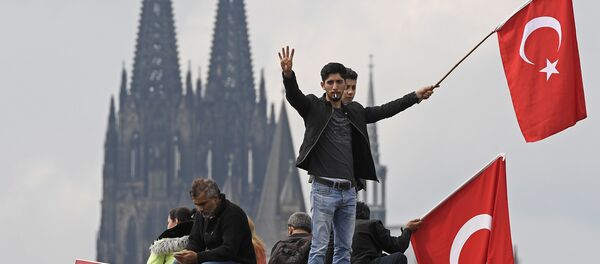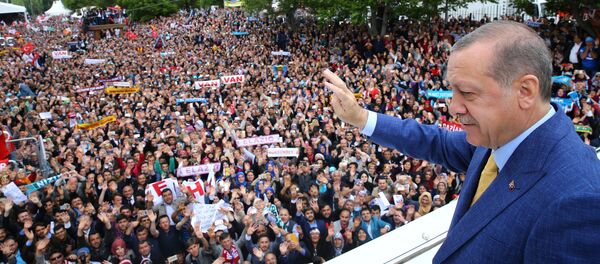According to the resolution, the constitutional changes proposed by the reform "do not respect the fundamental principles of the separation of powers, do not provide for sufficient checks and balances and are not in line with the Copenhagen criteria."
The EU has also been concerned over Ankara’s suggestion to reintroduce the death penalty. In May, EU Commission President Jean-Claude Juncker said that if Turkey reintroduced capital punishment, it would mean the end of the country’s talks on accession.
Moreover, the resolution condemned the measures imposed by Ankara after last year’s coup attempt, including mass arrests and a crackdown on media.
Turkey’s admission to the European Union is a very complicated issue and it is premature to discuss it now, according to Dutch political analyst Nureddin al Omrani.
"It will be difficult to discuss Turkey’s admission to the EU for at least several more years," al Omrani told Sputnik Turkey.
"The members of the EU are united by the spirit of the agreements which are in the basis of the bloc. However, Ankara’s stance on the death penalty and human rights is far from that spirit," al Omrani pointed out.
"In one of his speeches, Erdogan said Europeans 'will not walk safely' on the streets [if Brussels keeps its current attitude towards Turkey]. Such statements raise concerns over Turkey’s foreign policy. How could we discuss the admission of a country the leader of which threatens other countries?" al Omrani argued.
On Friday, the Dutch government said it would not welcome Turkish Deputy Prime Minister Tugrul Turkes’s visit to the Netherlands for a ceremony among Turkish expatriates to commemorate the anniversary of last year’s failed coup attempt.
According to the analyst, the Dutch government "just could not let that happen."
The analyst added the Turkish government "should learn a lesson" from the current situation and Turks living in the Netherlands should respect its law and try to integrate in the society.
Meanwhile, a rally commemorating the victims of the 2016 coup attempt in Turkey will be held in Brussels on Wednesday. The meeting was organized by the Turkish ruling Justice and Development Party (AKP). Turkish Deputy Prime Minister Numan Kurtulmuş is expected to attend the event.
A coup was attempted in Turkey on July 15, 2016, by a faction within the Turkish military. The coup was foiled by forces loyal to the government. Ankara has claimed that the coup leaders were linked to the Gülen movement, considered a terrorist organization by Turkey, and were allegedly led by Fethullah Gülen, a Turkish cleric living in Pennsylvania.
"The goal of this meeting is clear. The goal is to confront Europeans with their own principles. Ankara wants the EU to feel guilty over its reserved reaction to the coup attempt. At the same time, Turkey is promoting its agenda, saying that the West is to blame for the coup," Josseran told Sputnik France.
According to the expert, the Turkish government wants to strengthen its influence on the Turkish diaspora in Europe.
"The AKP wants to unite several million Turks living in Europe around the idea of allegiance to Turkey. The idea is simple – being loyal to Turkey means being loyal to Erdogan and vice versa," Josseran said.






